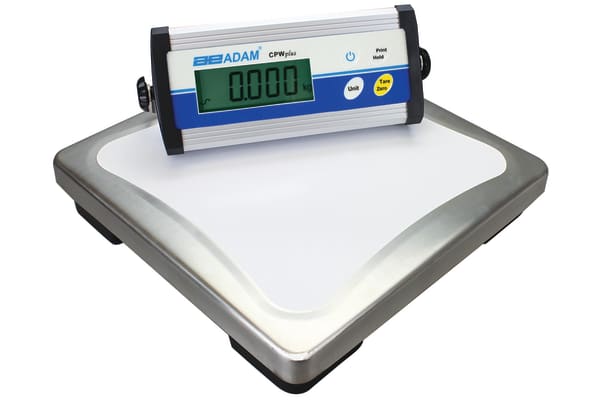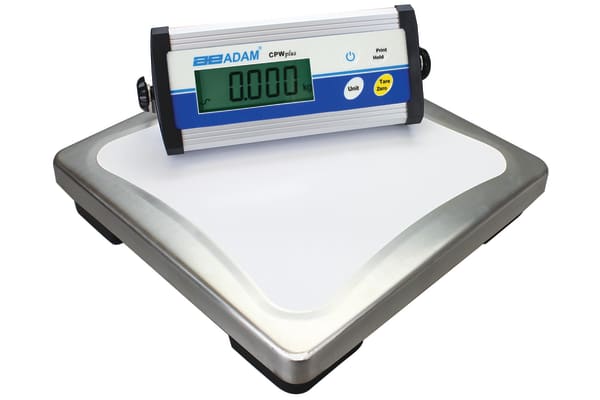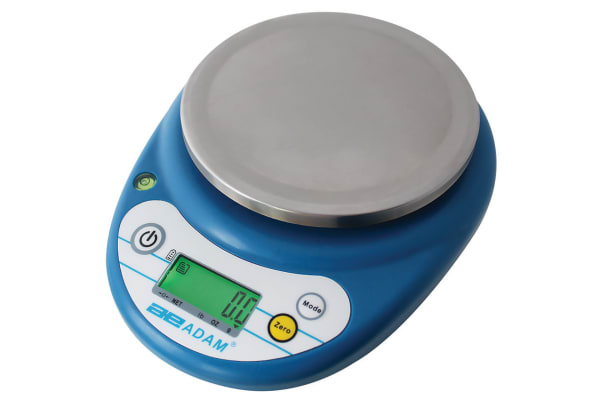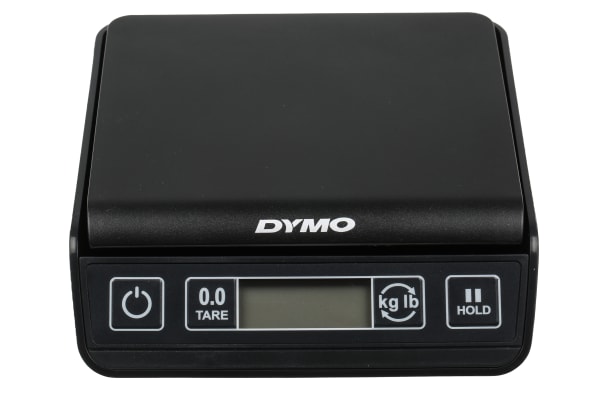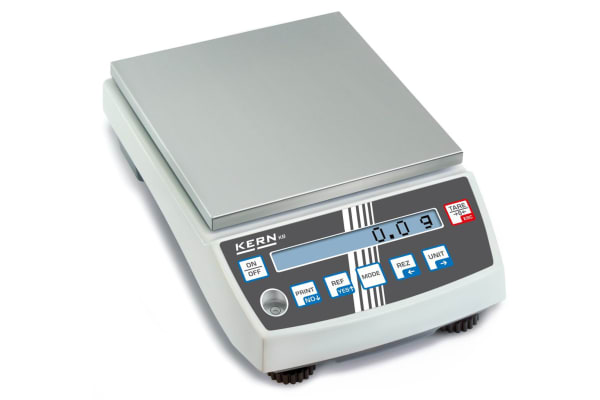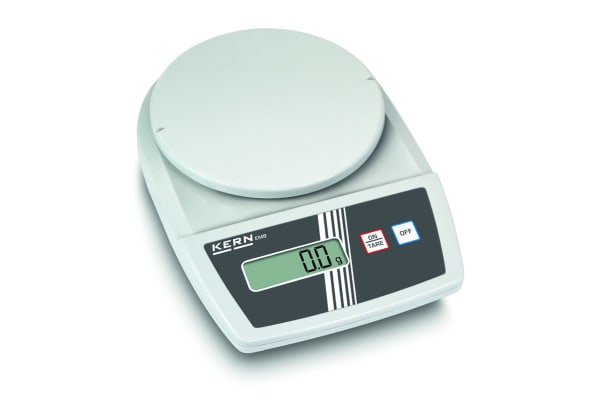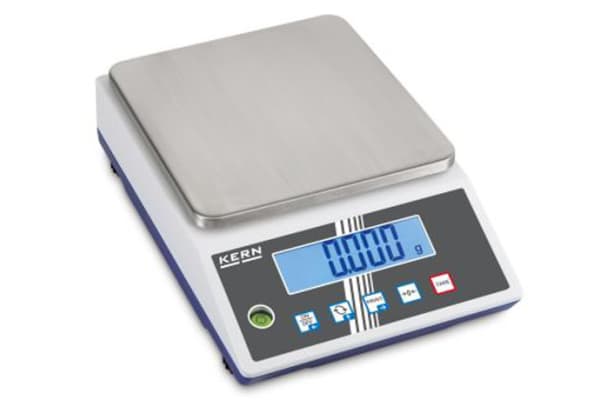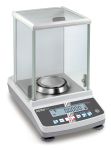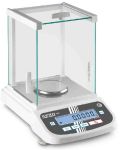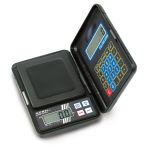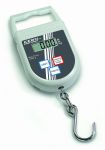Weighing Scales
Weighing scales are devices used to measure the weight of single or multiple objects. They are typically used for weighing smaller items, such as jewellery or food.The majority of scales feature a plate or bowl platform on which to place the item to be weighed. Analogue scales, or mechanical scales, use a spring mechanism to read the weight of the item. While digital scales use the force of the weight to generate an electric signal and provide an accurate weight reading. Digital scales are ideal for applications where precision is essential.Weighing scales provide a reading in a range of different units, for example in grams (g), kilograms (kg), Pounds (lbs) and Stone (St). Some offer multiple options so it is important that you choose a device suitable for your application.Types of weighing scale:Bench scales are used on workbenches or counters. They are a small scale used for weighing smaller materials. They are commonly used in laboratories, schools and warehouses.Counting scale are able to weigh objects and count them simultaneously. This replaces manual counting and prevents human error. Counting scales can also provide checkweighing against a pre-set weight.Hanging scales measure weight when the load is suspended from the scale. The load is attached using a hook or strap. Crane scales are a type of hanging scale used for heavier items.Pocket scales are compact devices designed for weighing on-the-go.Calibrated Bench Weighing ScalesWeighing scales are used regularly which could mean the level of accuracy drops. It is important that your scales give accurate readings and one way to ensure this is by calibrating your scales. RS Components offers a calibrated option at initial purchase stage and a yearly calibration service all to RSCAL standard.
-
Adam Equipment Co Ltd Crane Scale, 2000kg Weight Capacity
VND15,114,775.20 -
Adam Equipment Co Ltd Weighing Scale, 150kg Weight Capacity
VND18,699,931.25 -
Adam Equipment Co Ltd Weighing Scale, 200kg Weight Capacity
VND10,403,543.29 -
Adam Equipment Co Ltd Weighing Scale, 300kg Weight Capacity
VND19,962,843.53 -
Adam Equipment Co Ltd Weighing Scale, 300kg Weight Capacity
VND22,476,741.98 -
Adam Equipment Co Ltd Weighing Scale, 35kg Weight Capacity
VND8,025,435.11 -
Adam Equipment Co Ltd Weighing Scale, 500g Weight Capacity
VND2,231,856.41 -
Dymo Weighing Scale, 100kg Weight Capacity Type G - British 3-pin
VND10,053,083.04 -
Dymo Weighing Scale, 10kg Weight Capacity
VND5,536,644.26 -
Dymo Weighing Scale, 1kg Weight Capacity
VND2,004,841.86 -
Dymo Weighing Scale, 2kg Weight Capacity
VND2,471,424.76 -
Kern Weighing Scale, 1.21kg Weight Capacity Type B - North American 3-pin, Type C - European Plug, Type G - British
VND13,702,054.24 -
Kern Weighing Scale, 1.2kg Weight Capacity Type C - European Plug, Type G - British 3-pin
VND2,689,233.19 -
Kern Weighing Scale, 10kg Weight Capacity Type B - North American 3-pin, Type C - European Plug, Type G - British 3-pin
VND10,320,897.44 -
Kern Weighing Scale, 120g Weight Capacity Type B - North American 3-pin, Type C - European Plug, Type G - British 3-pin
VND40,480,355.79 -
Kern Weighing Scale, 120g Weight Capacity Type B - North American 3-pin, Type C - European Plug, Type G - British 3-pin
VND100,620,799.30 -
Kern Weighing Scale, 120g Weight Capacity Type B - North American 3-pin, Type C - European Plug, Type G - British 3-pin
VND29,870,093.26 -
Kern Weighing Scale, 120kg Weight Capacity Type B - North American 3-pin, Type C - European Plug, Type G - British 3-pin
VND12,529,947.78 -
Kern Weighing Scale, 12kg Weight Capacity Type B - North American 3-pin, Type C - European Plug, Type G - British 3-pin
VND7,476,206.36 -
Kern Weighing Scale, 150g Weight Capacity
VND2,833,183.43 -
Kern Weighing Scale, 150g Weight Capacity
VND1,675,513.84 -
Kern Weighing Scale, 150kg Weight Capacity Type B - North American 3-pin, Type C - European Plug, Type G - British 3-pin
VND10,606,077.93 -
Kern Weighing Scale, 15kg Weight Capacity
VND2,141,887.51 -
Kern Weighing Scale, 15kg Weight Capacity Type C - European Plug, Type G - British 3-pin
VND11,723,366.13





